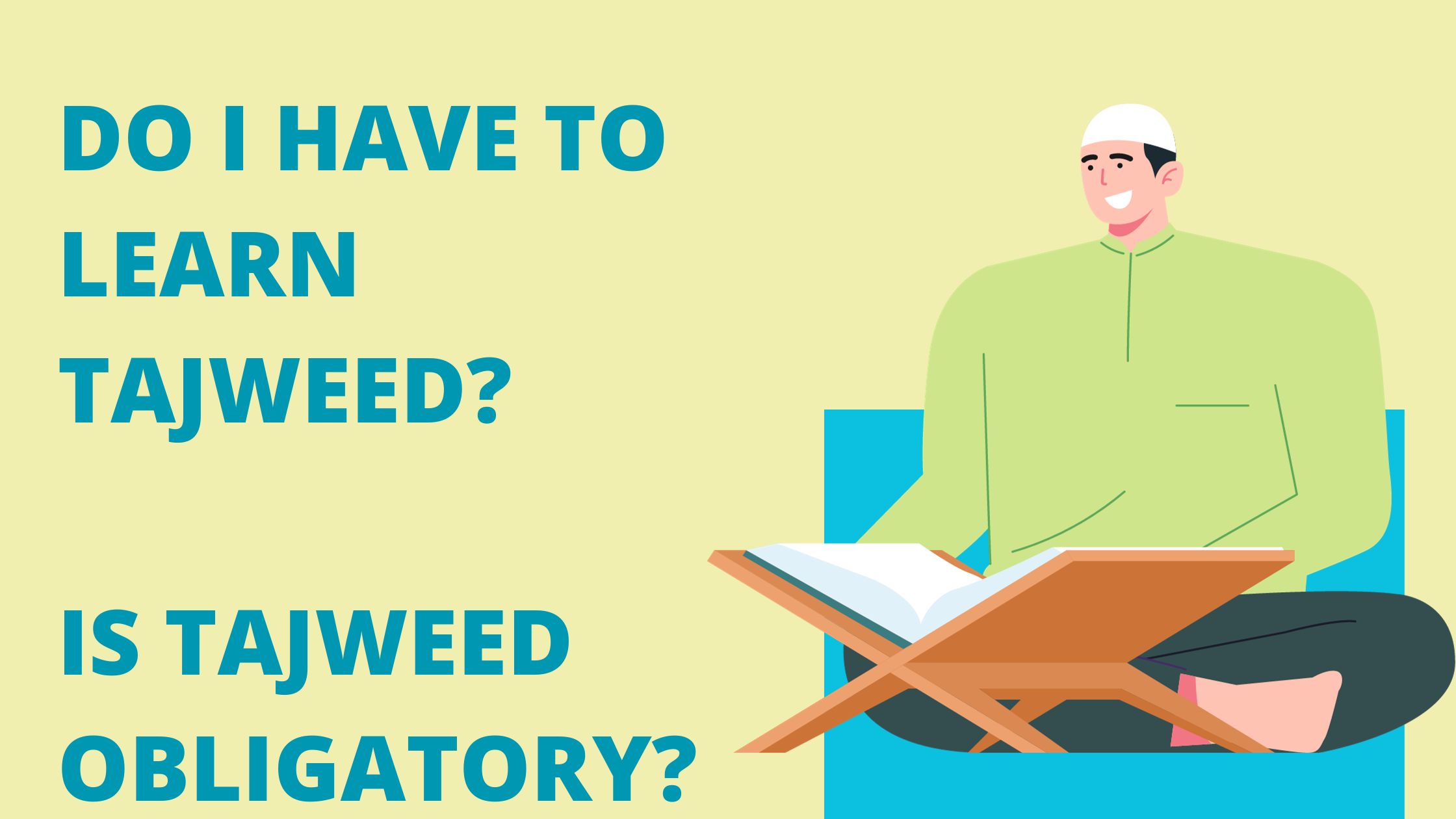While learning Tajweed may not be obligatory in Islam, it holds immense value and benefits for those who wish to recite the Quran with precision and beauty. Understanding the meaning of Tajweed and its importance can help us appreciate the significance of adhering to its rules.
The evidence from both the Quran and Hadith highlights the emphasis on proper recitation. By learning Tajweed, we can improve our pronunciation, enhance our understanding of the Quranic text, increase focus and concentration during recitation, and develop a stronger spiritual connection with Allah.
Table of Contents
Understanding the Importance of Tajweed
Tajweed is an Arabic term that refers to the set of rules and guidelines for correctly pronouncing and reciting the Quran. It stems from the verb “jawada,” which means enhancement or to make something excellent.
In the context of reciting the Quran, tajweed means giving every letter its right in terms of pronunciation and articulation. It ensures that each letter, word, and verse is recited with precision and clarity.
Tajweed is crucial because a slight change in pronunciation can alter the meaning of a word, and reciting the Quran should be taken seriously to avoid any mistakes or misinterpretations.
At Bayan Al-Quran Academy, we believe that every Muslim should have a thorough understanding of Tajweed. Join us on this journey towards perfecting your recitation skills and deepening your connection with the Quran.
Is Tajweed Obligatory in Islam?
No, Tajweed is not obligatory in Islam. While it is highly encouraged for all Muslims to learn and practice Tajweed to the best of their ability, it is not a mandatory requirement for reciting or understanding the Quran.
However, applying Tajweed helps preserve the originality and beauty of the Quran and enhances the understanding of its meanings. It is considered a recommended practice to recite the Quran accurately and articulate its words correctly, but it is not a sin or forbidden to recite the Quran without Tajweed.
Join us at Bayan Al-Quran Academy and embark on your journey towards mastering the beautiful recitation of the Quran with proper Tajweed. Enroll in our courses now!
The Evidence for Learning Tajweed in the Quran and Hadith
The evidence for learning Tajweed in the Quran and Hadith is abundant, highlighting its importance in correctly reciting the words of Allah. The following is evidence that emphasizes the significance of Tajweed:
1. Quranic Evidence:
In Surah Al-Muzzammil (73:4), Allah instructs the Prophet Muhammad, “And recite the Qur’an with measured recitation.” This verse emphasizes the need for precise and measured recitation, which is achieved through the application of Tajweed rules.
2. Hadith Evidence:
Aisha narrated that the Prophet (PBUH) said, “Whoever recites the Quran and memorizes it will be among the noble righteous scribes in Heaven. And whoever puts effort into memorizing the Qur’an and recites it with difficulty will receive a double reward.” (Sahih al-Bukhari 4937)
The Impact of Tajweed Rules on Quran Recitation
Tajweed rules have a significant impact on Quran recitation as they ensure the correct pronunciation, intonation, and rhythm of the words and verses. By following Tajweed, one can accurately convey the intended meanings of the Quranic text.
Proper application of Tajweed rules enhances the beauty and eloquence of the recitation, making it more melodious and pleasing to the ear. It also helps in preserving the authenticity and purity of the Quranic Arabic language.
Tajweed rules provide a systematic approach to recitation, enabling learners to avoid mispronunciations or mistakes that could alter the meaning of the words.
Is learning Tajweed important? Tajweed is crucial for preserving the integrity and reverence of the Quran, as well as for experiencing the spiritual and emotional benefits of recitation.
Can You Recite the Quran Without Tajweed?
Yes, it is permissible to recite the Quran without Tajweed. While Tajweed is highly encouraged and important for proper pronunciation and beautification of the recitation, it is not considered forbidden or sinful to recite the Quran without Tajweed, especially for individuals who are learning or have not yet mastered the rules of Tajweed.
It is necessary to learn Tajweed to become a proficient reader, but there is no compulsion to do so. Ultimately, the intention and sincerity in reciting the Quran hold more significance than the perfection of Tajweed.
So why settle for less when you have an opportunity to enhance your connection with Allah through accurate recitation? Start your journey towards mastering Tajweed today by enrolling in courses offered by Bayan Al-Quran Academy!
Is Tajweed Obligatory in Salah?
No, Tajweed is not obligatory in Salah. While it is preferable and beneficial to recite the Quran with Tajweed in Salah, it is not a requirement or obligation.
The main focus in Salah is on performing the physical actions correctly and fulfilling the essential components of the prayer. However, learning and practicing Tajweed can enhance the beauty and precision of the recitation during Salah.
Benefits of Learning Tajweed for Non-Native Arabic Speakers
Learning Tajweed can have numerous benefits for non-native Arabic speakers. Here are some of the key advantages:
1. Improved Pronunciation:
Tajweed helps non-native Arabic speakers to accurately pronounce the letters and sounds of the Quran. By learning proper pronunciation, individuals can recite the Quran with clarity and precision.
2. Enhanced Understanding:
Learning Tajweed also aids in understanding the meaning of Quranic verses. By following Tajweed rules with examples, learners can grasp the intended message behind each verse more effectively, leading to a deeper comprehension of the Quran.
3. Increased Focus and Concentration:
The study of Tajweed requires concentration and discipline, which can help non-native Arabic speakers improve their focus while reciting or studying the Quran. This heightened attentiveness allows individuals to connect more deeply with Allah’s words.
4. Spiritual Connection:
Mastering Tajweed enables non-native Arabic speakers to establish a stronger spiritual connection with Islam’s holy book. Properly reciting verses enhances one’s experience during prayer and fosters a sense of tranquility and solace.
By enrolling in online courses at Bayan Al-Quran Academy, you can embark on your journey to learn Arabic letters pronunciation with Tajweed from experienced teachers who will guide you every step of the way!
Enroll Your Child in Bayan Al-Quran Academy and Watch Them Excel in Quran Recitation and Tajweed
At Bayan Al-Quran Academy, kids can start learning the Quran online with Tajweed. We offer one-on-one classes with certified tutors who are well-versed in Quran recitation and Tajweed rules. Our online platform ensures convenience and flexibility, allowing students to have lessons anytime, anywhere.
With our expert male and female Quran tutors, kids can receive personalized attention and guidance to enhance their understanding and memorization of the Quran. We also provide Arabic language and Islamic studies classes for all ages and levels. Start your Quran learning journey with us at Bayan Al-Quran Academy and experience the benefits of online education.
Conclusion
Learning Tajweed is highly recommended for anyone who wants to recite the Quran with proper pronunciation. While it may not be obligatory in terms of fulfilling the basic requirement of reciting the Quran, it is considered a best practice to learn Tajweed to enhance one’s connection with the words of Allah.
Tajweed not only enhances our comprehension and appreciation of the exquisite linguistic nuances in the Quran, but it also enables us to recite correctly during Salah by adhering to the rules and etiquettes of recitation. Moreover, for non-native Arabic speakers, learning Tajweed can greatly assist in overcoming pronunciation challenges and help them read the Quran fluently.
So why wait? Start your journey towards mastering Tajweed today by enrolling yourself or your children at Bayan Al-Quran Academy where expert tutors will guide you through this profound art form!

















